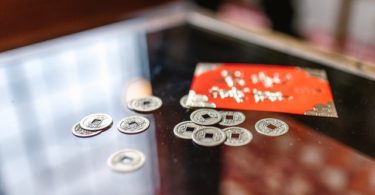No matter how well the stock market is performing, there are always a handful of catalysts waiting in the wings to cause a crash. At the moment, none seems to be stirring more of a buzz than inflation.
Earlier this month, the Bureau of Labor Statistics reported that 12-month inflation, as measured by the Consumer Price Index for All Urban Consumers (CPI-U) was 5.4% in June 2021. When taken as a whole, it’s the largest one-year jump since August 2008. Even scarier is that the core Consumer Price Index (the CPI-U minus food and energy) rose 4.5%, representing the highest 12-month increase since November 1991.
Inflation can destroy the purchasing power of cash sitting on the sidelines. That’s why an environment of rising inflation is the perfect time to consider buying high-yield dividend stocks. The following five high-yielding stocks can practically offset inflation with their generous payouts, as well as provide potential for steady share price appreciation.
Kinder Morgan: 6.1% yield
Energy stocks are usually a good bet to deliver juicy payouts, and natural-gas-focused midstream provider Kinder Morgan (NYSE:KMI) is no exception. Its existing yield of 6.1% trounces the inflation rate, and the company’s unique position within the energy complex makes it a good bet to deliver modest share appreciation in the years to come.
What investors are getting with Kinder Morgan is a mix of old and new. On one hand, they’re getting the predictability that comes with fee-based contracts. More than half of the company’s revenue is generated from these long-term contracts that pay off whether or not its customers use its pipelines or storage space. The clear outlook and cash flow these contracts provide are what allow Kinder Morgan to undertake infrastructure projects without overextending itself and inadvertently threatening its payout.
On the other hand, a company like Kinder Morgan isn’t oblivious to the changing landscape of energy in the United States. It’s been pursuing opportunities in alternative energy that’ll set it up for a long time to come. This includes the recent acquisition of liquefied natural gas supplier Kinetrex Energy. As my Foolish colleague Matt DiLallo notes in greater detail, Kinetrex owns a 50% stake in a landfill renewable natural gas (RNG) facility, with more RNG facilities in the works. RNG is Kinder Morgan’s ticket to low-cost methane production, and one of many steps the company will take to stay relevant as a highly profitable midstream operator.
Walgreens Boots Alliance: 4.1% yield
Given the need to spend big bucks on research and development, we don’t expect healthcare stocks to pay hearty dividends. And yet, the predictability of the pharmacy operating model allows Walgreens Boots Alliance (NASDAQ:WBA) to dole out a greater than 4% yield.
Walgreens is shaking things up in a big way by undertaking a multipoint turnaround plan designed to boost growth and improve its operating margins. The company expects to have pared back more than $2 billion in annual operating expenses by the end of fiscal 2022, and has been aggressively investing in digitization initiatives that’ll boost online sales and drive repeat business.
Arguably even more exciting is Walgreens’ partnership with VillageMD, which was announced last year. The duo will be the first to open full-service, doctor-staffed clinics in Walgreens stores. The goal is to open up as many as 700 locations by mid-decade in over 30 U.S. markets. Whereas most in-store clinics can handle vaccines or treat the common cold, a full-service clinic is more likely to bring in patients with chronic illnesses who can become lifelong customers at Walgreens’ higher-margin pharmacy.
Philip Morris International: 5% yield
Although the high-growth days for tobacco stocks have long since passed, Philip Morris International (NYSE:PM) can still deliver smoking-hot returns for investors.
The great thing about Philip Morris is its geographic diversity. According to the company, it has a presence in more than 180 countries worldwide. This means if it’s facing regulatory pressure in select developed markets, it’ll be able to offset potential volume weakness with growth from emerging markets.
Additionally, since nicotine is addictive, Philip Morris, the company behind the Marlboro cigarette brand outside the United States, has very strong pricing power.
But keep in mind that Philip Morris is looking to the future. The company’s heated tobacco system known as IQOS has been picking up steam in a number of countries around the world. In the June-ended quarter, heated tobacco unit shipments jumped 30.2% from the prior-year period. The cash flow predictability of cigarette sales, coupled with the high-growth potential of IQOS, makes Philip Morris a safe way to tackle rising inflation.




Leave a Comment